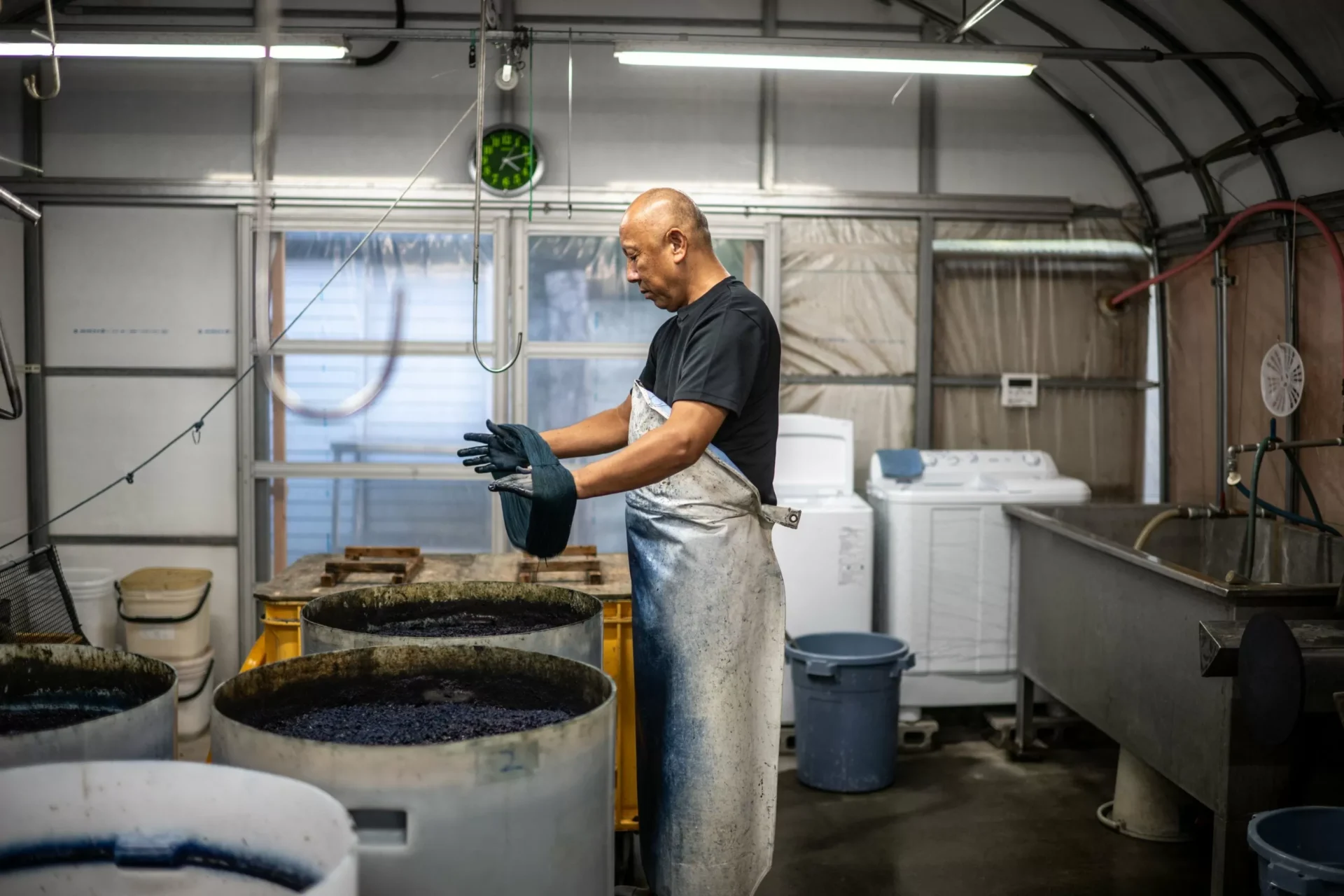Call it an antidote to fast fashion: Japanese jeans hand-dyed with natural indigo and woven on a clackety vintage loom, then sold at a premium to global denim connoisseurs. In a world where fast fashion dominates the clothing industry, these artisanal jeans stand out for their quality, craftsmanship, and sustainability.
Japan has a long history of denim production, dating back to the 1950s when American soldiers stationed in Japan brought their love for Levi’s jeans with them. Over the years, Japanese denim manufacturers have perfected their techniques, creating some of the finest and most sought-after denim in the world.
One of the key factors that sets Japanese denim apart is the use of natural indigo dye. Unlike synthetic dyes, which are commonly used in mass-produced jeans, natural indigo is derived from plants and has been used for centuries in Japan. The process of dyeing with natural indigo is time-consuming and labor-intensive, but the result is a rich, deep blue color that is unique to each pair of jeans.
But it’s not just the dye that makes Japanese denim special. The weaving process is just as important. Many Japanese denim manufacturers still use vintage shuttle looms, which produce a distinct texture and character in the fabric. These looms are slower and require more skill to operate, but the end result is a denser, more durable fabric with a unique appearance.
The combination of natural indigo dye and vintage looms results in jeans that are not only aesthetically pleasing but also incredibly durable. Unlike mass-produced jeans that often fall apart after just a few wears, Japanese denim can last for years, even decades, with proper care. This makes them a sustainable choice for those looking to reduce their environmental impact and invest in long-lasting pieces.
The attention to detail and quality in Japanese denim production is also something that sets it apart. Each pair of jeans is carefully inspected and hand-finished, ensuring that every stitch is perfect. This level of craftsmanship is a nod to Japan’s culture of perfectionism and dedication to excellence.
But it’s not just the Japanese market that is appreciating these artisanal jeans. In recent years, there has been a surge in demand for Japanese denim from all over the world. Denim enthusiasts and fashionistas alike are willing to pay a premium for these high-quality, unique jeans.
One of the most renowned Japanese denim brands is Momotaro Jeans. Founded in 2006, the brand is known for its use of natural indigo dye and vintage shuttle looms. Each pair of jeans is handcrafted by skilled artisans in Okayama, a city in southern Japan known as the birthplace of Japanese denim. The brand’s dedication to quality and sustainability has earned them a loyal following and a spot on the global denim map.
Another popular brand is Studio D’Artisan, which has been producing denim since 1979. The brand is known for its use of traditional techniques and vintage looms, as well as its unique designs and collaborations with artists. Their jeans have become a staple in the wardrobes of denim enthusiasts worldwide.
But it’s not just about the brands. Many smaller, independent denim makers in Japan are also gaining recognition for their high-quality jeans. These small businesses often have a more personal touch, with the owners involved in every step of the production process. This adds an extra layer of authenticity and uniqueness to their products.
In a world where fast fashion dominates, Japanese denim serves as an antidote. It reminds us that quality and craftsmanship still have value and that investing in well-made, sustainable pieces is a more responsible choice. These jeans also have a story to tell, one that is deeply rooted in Japanese culture and tradition.
So the next time you’re in the market for a new pair of jeans, consider investing in a pair of Japanese denim. Not only will you be supporting a culture of craftsmanship and sustainability, but you’ll also be adding a unique and durable piece to your wardrobe. And who knows, you may just become a denim connoisseur yourself.

